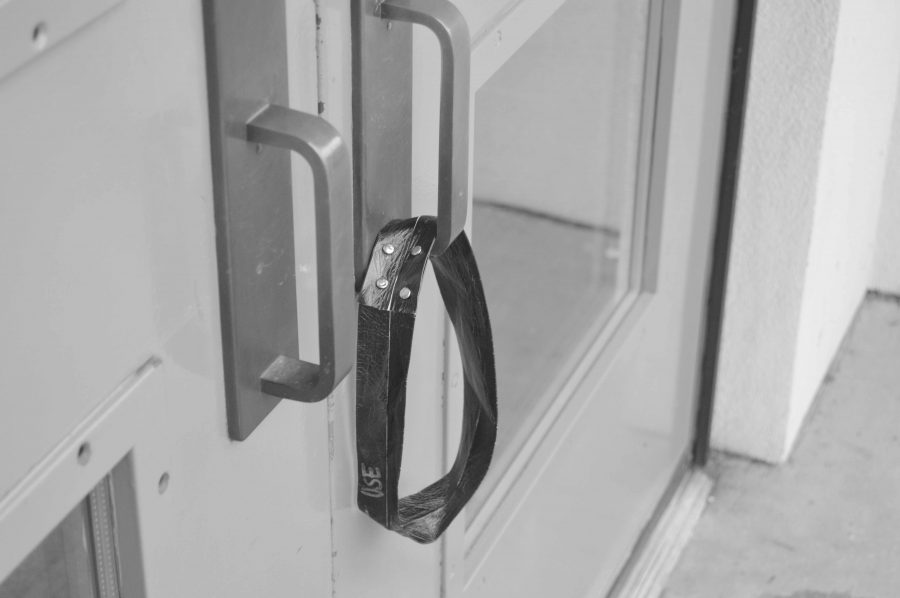Rows of glossy magazine covers, lined up in grocery store shelves, some adorned with pictures of tan, muscled men.
A nurse takes care of patients with practiced ease. He does not believe he could be doing anything else. The comment “so you are a murse” not affecting him the way it used to.
With stereotypes surrounding the male gender, restricting and directing the way they feel or act, some wish to break away from the confines of these stereotypes.
Dr. Michelle Ceynar, professor of psychology at Pacific Lutheran University, addresses society’s placement of gender roles.
“Society places expectations on both women and men to behave in particular ways. Women are expected to be nurturing, love children and beautiful. Men are expected to be assertive, competitive and dominant,” Ceynar said.
Psychology and APUSH teacher Willie Walker urges people to see past gender and see personality.
“People need to see personalities and just see people as human beings. People need to see that we have both X and Y genes so there is nothing that should hold us back. I think that when people care about the expectations that their true self does not come out and they suppress things and that leads to anger issues, stress issues and I think all that is linked to heart disease, kidney disease and it is not just mental but physical,” Walker said.
Ceynar explains the ramifications that may take place when people do not fit neatly into a gender role.
“These expectations placed on different genders can lead women and men to choose careers, develop interests and react to situations in ways that fit with their expected gender role,” Ceynar said. “If they do not fit neatly into their expected gender role, they may feel as if there is something wrong with them and face criticism from others. There is pressure for women to be thin and for men to be muscular— both of which can lead to eating disorders.”
Walker adds a historical view point as to why society has gender roles.
“It is a man’s world and ever since the dawn of time, Adam and Eve, it has been a man’s world. The way the Greeks and the Romans and all these old societies came about they were very patriarchal and the man was supposed to be head of the family,” Walker said.
Ceynar states that it is less about archetypal views but more about classifying concepts in order to understand them.
“One factor comes down to a need to simplify and understand our worlds. People naturally divide things into categories. It helps us to organize and simplify our worlds. Stereotypes are like mental shortcuts for understanding people,” Ceynar said. “Although often inaccurate, gender role expectations and stereotypes help us understand our complex social worlds quickly. It is relatively easy to categorize people as male or female and to divide social roles along those divisions. Since traditionally women have been the caregivers, we associate the qualities of care giving with women (nurturing, kind). Since traditionally men have been the breadwinners, we associate the qualities of bread winning with men (ambitious, leader).”
As people age, they grow and change. Walker shares his personal growth from believing in traditional gender roles to being more open minded.
“Before I went to college I had the idea that you had to be a strong man and because of me growing up with Christian values I was taught that a man is the head of the household and I grew up in that [strict, Christian, conservative] type of environment. I believe in a lot of that but I was also raised by a single mother who was [both] mom and dad and I am a single dad and my daughter says [that] I am more feminine than her so I do not believe that we can hold that in high regards anymore and that we have to look at people as a whole,” Walker said.
Ceynar believes that gender roles are changing along with the way society views different genders. She hopes to see gender roles stop constricting what jobs people take.
“I think gender norms are already changing as a result of people taking on the roles traditionally held by the other sex. As more women have moved into careers traditionally held by only men, we see more girls aspiring to those careers. For example, women have only been able to vote in the United States since 1920 but since they began voting and holding elected positions, our stereotypes of what a senator looks like have shifted,” Ceynar said.
There are low numbers of girls in leadership positions and low numbers of boys in more nurturing and caring positions, Ceynar hopes to see these numbers change.
“More girls aspire to become president now than even 50 years ago. This is important and we still need more women in Congress (in 2015 only about 19 percent of the U.S Congress was female) but what we really need, however, to see is more men doing careers that women have traditionally done (teachers, nurses, childcare workers, etc.). Only about 9 percent of nurses are men. Eventually, jobs will not be categorized by gender and it will not be unusual to see men who are nurses or women who are presidents. If boys and girls saw both men and women doing every job, they would feel less constrained by gender roles,” Ceynar said.
Walker gives examples of common stereotypes for the male gender.
“Well, men are not supposed to be emotional, men do not cry. We are supposed to be the bread winners and we are not supposed to be able to handle the feminine side of our emotions because it makes us ‘weak’ in the eyes of the world,” Walker said.
With attention focusing mainly on females and body image issues associated with the female gender, Ceynar hopes to see focus turning towards men and the way they are portrayed in the media. She believes that if men and their issues are focused on in the media it will break down some of the rigid expectations for all genders.
“We have a long way to go to achieve any sort of gender equality. We have focused a lot of attention on women in the media but we also need to examine how men are portrayed in the media and its impact on boys. More often than not, the male characters in the media have ripped bodies, are very violent and treat women with appalling disrespect. It does not leave much room for boys to aspire to be kind or intellectual or funny or a caring father or loving partner. And it sets up a lot of potential for violence toward women. If you look at the narrow ways in which we portray both women and men in the media, you will begin to see the boxes that we put people into and how much society limit the potential of both boys and girls,” Ceynar said.



